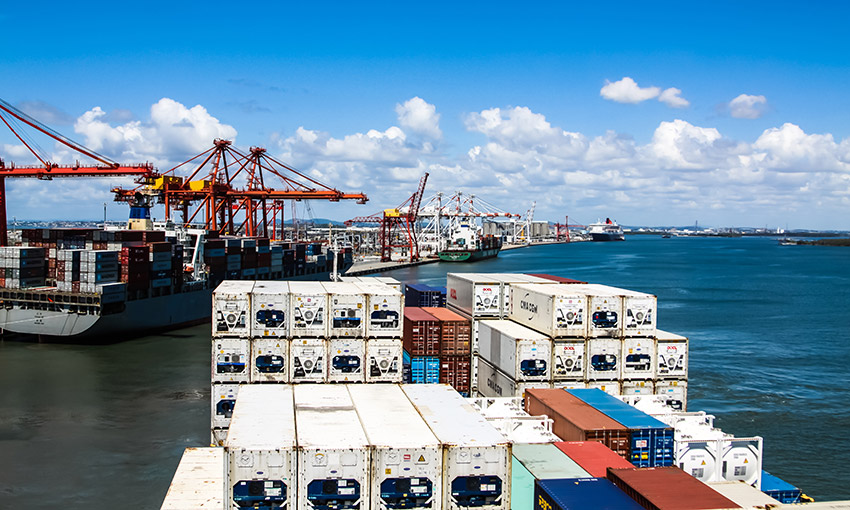CONTAINER throughput through the Port of Brisbane dipped slightly last month, according to the latest trade statistics published by the port.
July saw a total of 110,443 TEU move through the port, a drop of less than 1% on June and a 6% decrease on the same month last year.
Total containerised imports through the port in July were reported at 53,651 TEU, with “import other” (23,310 TEU), household items (6675 TEU) and electrical equipment (5231 TEU) as the largest cargo categories. The port also received 5398 TEU of empties.
Turning to exports, 51,993 TEU left the port in July. Once again, the largest export category was fresh air, with 24,374 TEU of empty containers being shipped out during the month. Other major export categories include “export other” (13,125 TEU), timber (5874 TEU) and meat products (4995 TEU).
Total trade through the port, including non-containerised and containerised freight totalled 2.383m tonnes last month. This was up on June by 10% but it was down 22% on July 2019.
This decrease was largely driven by a huge drop in coal exports, down from 806,597 tonnes in July 2019 to 462,508 tonnes, a decrease of 43%.
A number of other export commodities saw significant decreases over the period, with cotton decreasing 74% to 7873 tonnes and mineral, ores and sands decreasing 43% to 1678 tonnes. The only commodity to record an increase during July was iron and steel, up 71% to 65,624 tonnes.
Meanwhile, total imports decreased by 14% in July over the same month last year.
This was on the back of decreases of paper and wood pulp, crude oil and ‘other’ imports, with crude oil accounting for zero tonnage this past July, paper and wood pulp down 24% to 16,597 tonnes and other down 26% to 370,390 tonnes.
Import commodities that were up from up from July 2019 included fertiliser and chemicals, up 64% to 64,628 tonnes for the month and refined oil, up 30% to 489,071 tonnes.
Motor vehicle imports increased in July, with 11,945 units coming through the port, an increase of 2,151 units from June 2020. However, the number of units for July were well below those for the same month last year by a total of 8404 units.

